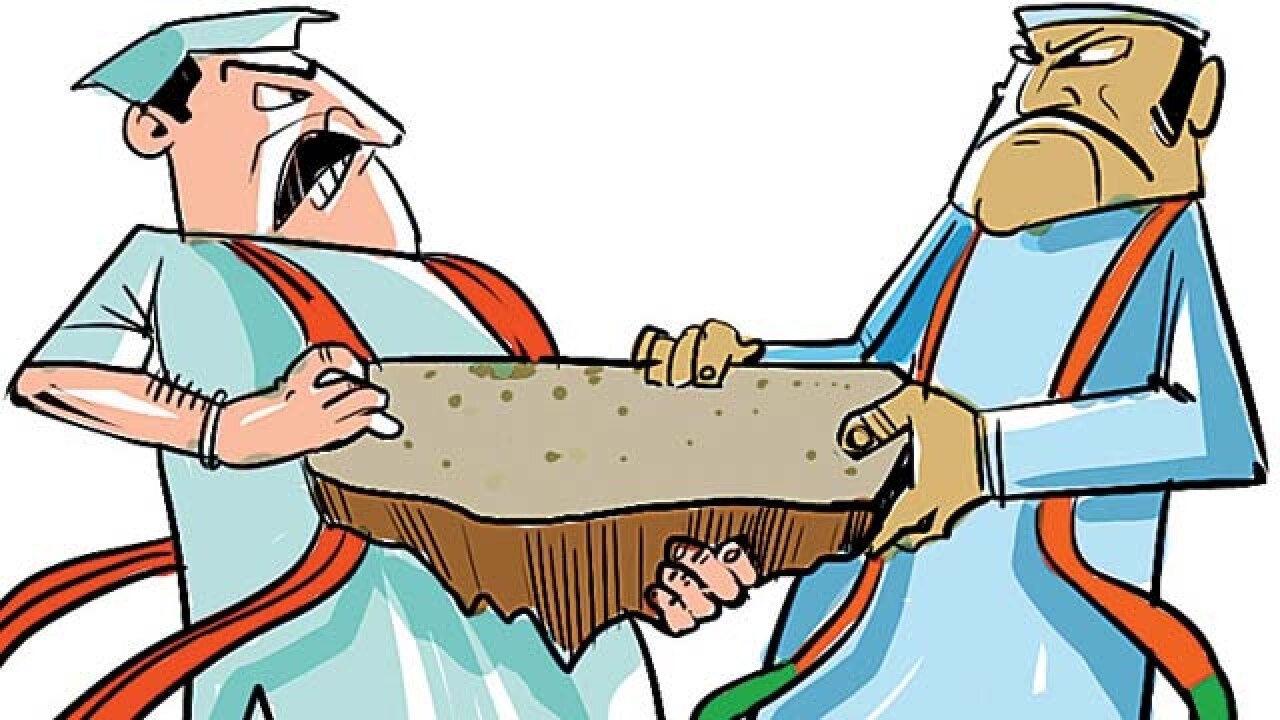
A new uprising is unfolding in the world of rants. Over the past three years, we had expected the rants would finally morph into a cohesive idea that studied and gleaned ancient Indian scriptures and inscriptions, adapted them to our modern times to deliver a new intellectual trampoline, from which to launch an ‘Indian way’, different from both socialist and capitalist, the Left and the Right.
But barring a Sanjeev Sanyal in the world of non-fiction, an Amish Tripathi, from the universe of fiction, a Swapan Dasgupta in the media, and stray papers from the few who pursue ideas with the rigour they demand, we have been proved wrong.
Instead of morphing into a thought stream, those ranting from the derelicts of the ‘wonder that was India’ have become cheerleaders of the Right, without knowing that several aspects of the word they now worship go against the core of the thought they seek to evangelise, again an idea foreign to the inclusive way of ancient India.
Instead, they have trapped themselves in a narrative whose sole outward manifestation is: Modi is always right, bestowing upon him a godhood that even he might cringe at. Their rants are largely reactionary, flitting around whataboutery to the ills of leftist-socialist political and intellectual domination of India’s discourse of the past few decades, statistically-insignificant for a civilisation that spans millenniums. As contradictory as it may sound, this movement is laced with a strange anger in the land of an all-accepting spirituality. Fighting foreign proselytising ideas, they have become the degenerate proselytisers they seek to condemn.
This renewed energy of rants rides a technological upgrade that allows anyone with a smartphone to lay claim to being a profound thinker. True, the computer has evolved into handhelds, words into 140-characters that can stream across to millions in microseconds, with the always-on broadband and Google powering the rise of the instant intellectual. But having a tool doesn’t an intellectual make, spitting histrionics doesn’t an argument build—it’s like a weakling trying to wield a mace. To fight, you need weapons as well as the capacity to use them.
In this cacophony of self-righteousness, the underlying logic is that traditional media has become the establishment, its journalists ‘presstitutes’, and social media carting their unprocessed voices the ‘new dissenter’. Perhaps some media have lost their way, some journalists their moral compass. This is particularly accentuated in politics, where a nationalist BJP is rising against a ‘secular’ Congress and has disrupted past power equations. That said, it is the job of journalists to critique the government—don’t grudge them their profession, else we would be living in a land where spin would be our reality and press releases our daily feed. But critiquing the journalist can’t be done with rants, the path has to tread the first principles of journalism—fact-checking, points of view, fairness, ethics, contexts.
Likewise, when confronting a scholar or an idea, it is important to know that the alleged ‘India and Hindu hater’ follows ideas and ideas leave an evolutionary trail. In order to engage a scholar, the minimum requirement is an exposure to that trail through peer-reviewed papers. It is important to know the work of the person or the streams that led to the ocean of a big idea. Dismissing either by name-calling is easy, but nobody takes that seriously. In order to get a respectable hearing, the minimum requirement is new knowledge creation or at least an argument baked in knowledge. Only then will the rants become comprehensible.
An alternative view, an ‘Indian way’ is essential, no doubt. But that view needs a deeper discourse than the first ‘search’, a wider canvas than a sense of persecution, a broader objective than blind worship, a higher ideal than dogma.
The author is New Media Director at Reliance Industries Ltd, and author of ‘Tunnel of Varanavat’. Views are personal. This is Part 1 of a two part series.